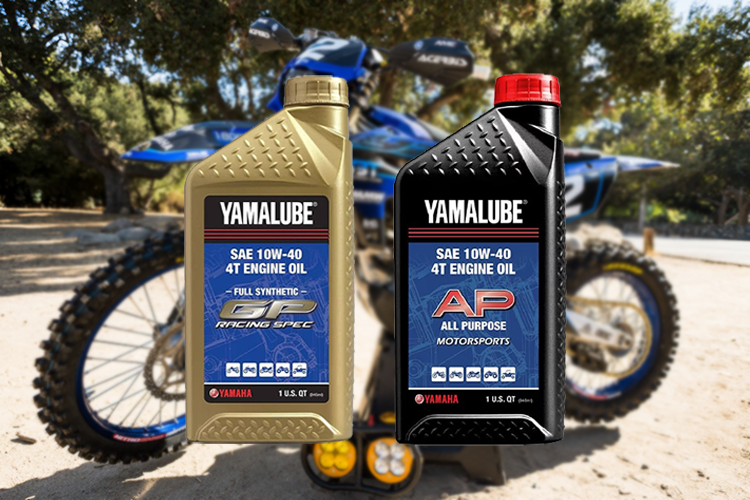Yamalube Synthetic vs Non-Synthetic Oil
Story by Trevor Hunter
One thing that will stand the test of time amongst gear heads is the argument over oil. What oil company should one use? How often should one change it? Synthetic or non-synthetic oil? The debate goes on and on with no clear cut winner, at least in our eyes. We recently tested some different Yamalube oils in our YZ450FX test bike looking to see if there is any difference in performance between their standard 10w-40 All Purpose engine oil and their 10w-40 Full Synthetic GP Racing Spec engine oil. We aren’t here to say what’s better for the life of the engine, but rather what we feel out in the dirt.
The GP Racing synthetic oil had slightly smoother shifting both up and down, being most noticeable on upshifts under a heavier load. It was more apparent on fast straightaways, uphills, and deeper sand and loam in comparison to the ease of shifting running the standard AP engine oil.
In addition to the ease of shifting, the window of engagement was wider with the synthetic oil. We had more feel and could finesse the clutch easier with running the GP oil, whereas the engagement using the AP oil felt more like a hydraulic clutch with an on/off feeling and smaller window.
In talking with someone who is much smarter than us and can look at this scientifically, we asked a friend of DBT’s Chris Real his thoughts on all of this from his perspective with science backing his response. Chris states “the test rider’s shift performance feeling is accurate due to less thinning (viscosity reduction) at the higher temperatures and contact loads. Basically when petroleum oil is smoking hot, it thins / reduces viscosity and the parts are making contact. ‘Hydrodynamic interaction shifts into the boundary lubrication interface zone.’ Surfing or scrubbing, like riding on a sand dune, either you are planing or you are plowing. The other area of note would be ease of starting in cold temperatures around 30-40 degrees. This is sort of a big deal when the battery cold cranking amps are low, and more drag is on the engine.”
Talking about the possible negative effects of synthetic oil, and the idea of Rotella, Real says “in a high time engine, synthetic oil will often get past rings and valve seals, resulting in oil consumption.” Meanwhile, “synthetic oils and auto clutches have noticeable actuation changes. Sometime’s I’ll start with 15w40 Shell Rotella, then switch to 5w40 Totella T6.”
The difference in shifting smoothness isn’t really enough to sway us to one oil vs the other, but the cutch feel is more important and is enough of a difference that most of our testers, especially those who prefer the cable clutch “feel” and engagement, would rather run the synthetic oil. Does the extra cost of the synthetic oil play a role into this? It sure can. How about engine durability and the factors thay play into that as stated by Chris Real? There should be some thought and consideration if you have a high hour engine. But purely based on feel alone, there is a difference amongst oils and it’s up to you to decide what you prioritize most.






